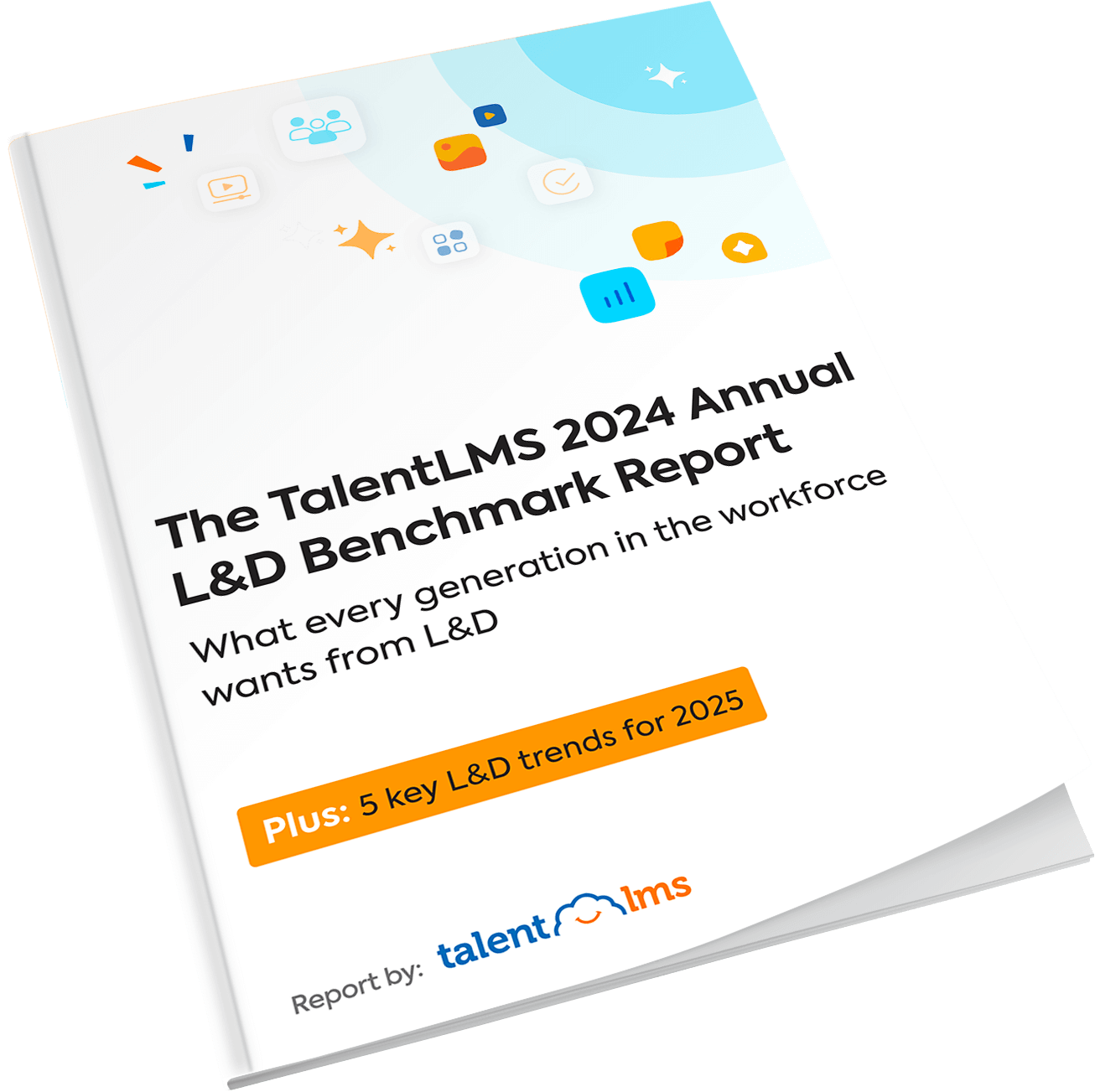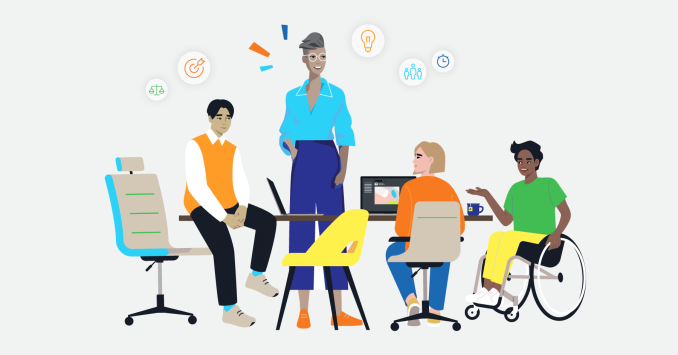The report reveals how four generations of employees view workplace learning and what they expect from it. Explore the impact of L&D developments over time on workforce satisfaction, skills and retention. Plus, discover 5 key L&D trends for 2025.

Generational divide of feelings: Generation Z is the generation least satisfied with training programs, while Millennials are the most satisfied.
Highlights
AI goes beyond training
Nearly half of employees (49%) say AI is advancing faster than their company’s training programs are keeping up.
Focus on leadership training
For the second year in a row, employees place leadership training at the top of their development priorities.
Free Fall Skills
More than 4 in 10 employees (41%) believe that professional skills are becoming irrelevant more quickly due to technological advances.

Satisfaction with training
Millennials are the generation most satisfied with training, with a satisfaction rate of 83%. They are followed by Generation X (78%) and Baby Boomers (77%). Gen Z lags behind at 75%, while also reporting the highest dissatisfaction rate (13%) of all generations.
The untapped potential of L&D
Despite high employee satisfaction with training, learning and development programs in companies are far from perfect. The employees surveyed recognize that there is untapped potential: 63% believe that their company’s training programs could be improved.
Search information: AI Barriers, Priorities, and Considerations in Training and Development
Gen Z retention is at risk
37% of Generation Z will look for a new job in 2025 if their company does not provide adequate training opportunities.
Navigating AI Dilemmas
65% of employees want training on how to use AI safely and ethically, demonstrating tangible and immediate AI concerns.
A hidden obstacle to training
23% of employees hesitate to request the additional training they need because the available budget is not clear.
Generation gap in communication
Overall, 23% of employees find it difficult to communicate with colleagues who are not their age. Additionally, generational analysis reveals a hidden divide. For Generation Z, the challenge is the greatest: 33% of them have difficulty communicating between generations. Younger workers are 3 times more likely than baby boomers, 1.5 times more likely than Generation X, and 1.3 times more likely than millennials to have difficulty communicating with different generations at work.
Impact of AI on employee skills
42% of employees say that AI tools have a positive impact on their skills. But the negative impact of AI, although overall low (5%), seems different for younger employees. Gen Z is 3 times more likely (9%) to say AI hurts their skills than Gen X (3%).and 2.2 times more than Millennials (4%) and Baby Boomers (4%). This could indicate the emergence of a trend of declining skills among a generation increasingly dependent on AI.
AI tools at work: a gray area
Despite massive investments in AI tools, data shows that organizations lack clarity on how employees can leverage these tools. The majority of employees surveyed (54%) say their company lacks guidance on using AI tools. As a result, they must decide for themselves whether and how to integrate AI into their work. Even more striking, 11% of workers surveyed say that the use of AI tools is completely prohibited (!) in their company. On a positive note, 35% of employees are encouraged by their company to take advantage of AI tools.
Search information: Training priorities for the future
Ready for the future of work
68% of employees are better prepared for the future of work thanks to the training they received.
Mental health training
Gen Z is the only generation to rank mental health training among their top three development priorities.
Employee skills priorities
The 3 main employee training priorities for 2025 are leadership and management, soft skills and digital skills.
Download the full-size report
L&D is the key to organizational success. Leverage insights from the report to supercharge your growth initiatives.
Dive Deeper into TalentLMS’ Original Research

Research: Growth Mindset in the Workplace

Research: Critical Gaps in Leadership Development

Research: state of the art of professional development and retraining in 2024

Create a Strong Learning Culture in Your Organization with TalentLMS
Sign up in seconds, test the platform forever, upgrade anytime.



